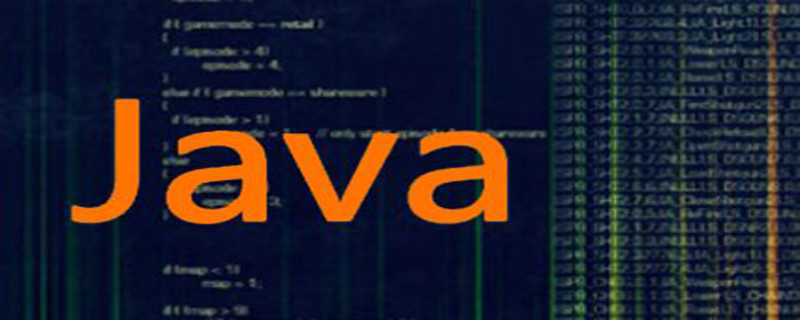
With the rapid development of the Internet, more and more people are beginning to learn Java. For friends who like programming, Java is a language worth learning. So how should you learn the Java language?

Java is an object-oriented programming language. It not only absorbs the various advantages of the C language, but also abandons the concepts such as multiple inheritance and pointers that are difficult to understand in C. Therefore, The Java language has two characteristics: powerful and simple to use. As a representative of static object-oriented programming languages, Java language perfectly implements object-oriented theory and allows programmers to perform complex programming with an elegant way of thinking.
If we want to learn Java, we must first understand the meaning of each version of Java:
JavaSE (Java Standard Edition): Standard Edition, positioned on personal computers application. This version is the core of the Java platform. It provides a very rich API to develop applications on general personal computers, including user interface interfaces AWT and Swing, network functions and internationalization, image processing capabilities, input and output support, etc. The Applet that became so popular on the Internet in the late 1990s also belongs to this version;
JavaEE (Java Enterprise Edition): Enterprise Edition, positioned as a server-side application. JavaEE is an extension of JavaSE that adds class libraries for server development. For example: JDBC allows programmers to use SQL syntax directly in Java to access data in the database; Servlet can extend the functions of the server and handle client requests through the request-response model; JSP is a method that can use Java to Technology for embedding program code in web pages;
JavaME (Java Micro Edition): Micro version, positioned in the application of consumer electronic products, JavaME is an extension of JavaSE, including Some of the core classes of J2SE also have their own extension classes. This version streamlines the core class library to meet the needs of electronic consumer products with limited resources, and provides a modular architecture to allow different types of products to add support at any time.
Below I will introduce to you how to learn the Standard Edition and the Enterprise Edition respectively:
JavaSE Part:
When novices first learn, You need to start learning JavaSE. The content included is mainly divided into: understanding of object-oriented concepts, learning basic Java syntax, development of Java desktop graphical interface applications, mastering commonly used Java APIs, etc. (the key is to learn how to look up) .
Focus: Java basic syntax (loop structure, data type, array, operator, etc.), Swing, awt, event mechanism, file input and output stream processing, etc.;
Difficulty: object-oriented thinking Understanding (interfaces, classes, etc.), threads, socket network programming, etc.
JavaEE part:
After learning JavaSE, you can try to slowly transition to JavaEE. Of course, learning JavaEE also requires the support of many other technologies, such as database technology, web programming technology, etc. JavaEE has three must-learn frameworks. If you say that you have learned JavaEE but do not know these three frameworks, you should not do it. These three frameworks are Struts, Spring and Hibernate, although these three frameworks are widely used. Wide, but it does not mean that these three frameworks represent JavaEE. JavaEE also has many other things, such as EJB. As a heavyweight framework, although this application is slowly being replaced by other frameworks, EJB3.0 Appearing also brings some life back to it. Mr. Chen from Shangxuetang mentioned that the current popular framework in JavaEE is the SSM framework, which is the three open source frameworks of Spring, SpringMVC and MyBatis. It is an improvement on the previous SSH framework.
However, these mentioned above are not the basis of JavaEE, but belong to the framework application level. To truly master the knowledge mentioned above, you still need to learn the core things of JavaEE: JDBC, JSP, servlet and JavaBean, the latter three are also the basis for learning SSH (short for Struts\Spring\Hibernate).
Since the content of JavaEE is too complicated, it is recommended that you only learn: JSP, servlet and JavaBean at first. After mastering the basics, you can learn SSH. Then you can go out with a general understanding of other JavaEE technologies. Looking for a job. Of course, in addition to learning Java well, there are also other technologies that must be mastered before finding a job.
Another important content is database technology:
The database is almost an indispensable part of the program, and it plays an important role in the entire software development. The database plays the role of the foundation in the entire software. If you want to build a house, you must first lay a good foundation. If you want to build software, you must first design a good database. At present, almost all databases are relational databases, represented by: SQL Server/MySQL, etc.
To sum up, learning Java is not difficult, as long as you can insist on hands-on learning, master the basic Java syntax, be able to skillfully apply the framework in actual projects, and be able to add, delete, modify and query the database As development experience increases, technology will continue to improve.
The above is the detailed content of How to learn java language?. For more information, please follow other related articles on the PHP Chinese website!